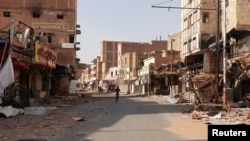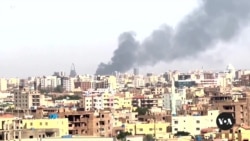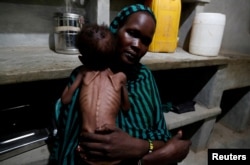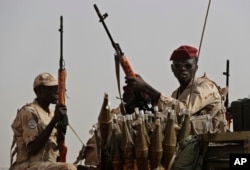The number of people killed in Sudan’s civil war is far higher than previously thought, according to new research, as aid agencies warn that the conflict has created the world’s worst hunger crisis with millions on the brink of famine.
The study by the London School of Hygiene and Tropical Medicine suggests that deaths in Khartoum state alone were higher than previous estimates for the entire country.
“In Khartoum State, between April 2023 and June 2024, the researchers estimate over 61,000 people died of all causes, a 50% increase in the pre-war death rate. Over the same period, it is estimated that there were over 26,000 deaths due to violence in Khartoum State, significantly higher than the 20,178 intentional-injury deaths reported by ACLED for the entire country,” the report said.
ACLED, or Armed Conflict Location & Event Data, is a non-profit organization whose figures are widely used by international organizations, including the United Nations, and national governments.
The research from the London School of Hygiene and Tropical Medicine showed that the leading cause of death was preventable disease and starvation. It indicates that the nationwide death toll in Sudan is far higher than previous estimates, as “over 90% of both all-cause and violent deaths in Khartoum State went unrecorded, suggesting the death toll in other regions is also significantly higher than recorded figures.”
Sudan’s civil war erupted in April 2023, a brutal power struggle between the army and the paramilitary Rapid Support Forces. The conflict has cut off entire communities and devastated most government services, making it difficult to reach an accurate estimate of the number of excess deaths caused by the conflict.
The study used a relatively new technique known as “capture-recapture analysis” which compares data from multiple sources to arrive at accurate estimates when not all data are recorded.
“It allows us to estimate the number of unrecorded events, in this case, deaths. We've done that by collecting data from three different sources, triangulating those three sources and comparing them and seeing the amount of overlap there was. The less there was an overlap between the three source lists, the more unrecorded deaths we estimated to have occurred,” lead author Maysoon Dahab told VOA.
Separately, the aid group Doctors without Borders says that since January this year, one in six of its patients at a Khartoum hospital were children under 15, with many sustaining severe injuries from gunshots, explosions and shrapnel. The organization said there has also been a rise in cases of severe malnutrition among children.
The United Nations says the conflict has forced 11 million people to flee their homes, with some 25 million people - half of Sudan’s population – needing food aid, making it the world’s biggest hunger crisis.
It’s vital that more is done to end the suffering, said Maysoon Dahab of the London School of Hygiene & Tropical Medicine.
“So, in the case of the international community, ensuring the understanding that the aid effort needs to be increased, scaled up and put out to inaccessible populations. In terms of actors who are shaping the war, what we hope to put out in terms of the research is the true price of this war. So that they are able to make their decision based on those facts,” she told VOA.
Visiting Khartoum last week for talks with Sudan’s army chief, the United States’ Special Envoy to Sudan, Thomas Perriello, said efforts international efforts were ongoing to end the violence. “We also share the aspiration for this war to end as soon as possible, to see an end to the horrific atrocities,” Perriello told reporters in Port Sudan on November 18.
However, there are few signs that either the Sudanese army or the paramilitary Rapid Support Forces are ready to agree a truce.
Meanwhile, Russia last week vetoed a United Nations Security Council resolution calling for a ceasefire, saying the process excluded Sudan itself.
Britain, which sponsored the resolution alongside Sierra Leone, strongly criticized Moscow’s decision.
“This Russian veto is a disgrace, and it shows to the world yet again Russia’s true colors,” British Foreign Secretary David Lammy said. “Shame on [Russian President Vladimir] Putin for pretending to be a partner of the Global South while condemning black Africans to further killing, further rape, further starvation in a brutal war,” he added.









